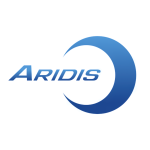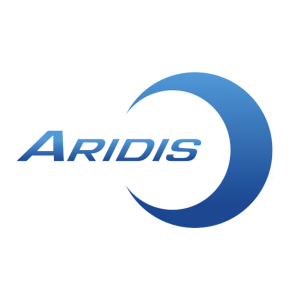Welcome to our dedicated page for Aridis Pharmaceuticals news (Ticker: ARDS), a resource for investors and traders seeking the latest updates and insights on Aridis Pharmaceuticals stock.
Our selection of high-quality news articles is accompanied by an expert summary from Rhea-AI, detailing the impact and sentiment surrounding the news at the time of release, providing a deeper understanding of how each news could potentially affect Aridis Pharmaceuticals's stock performance. The page also features a concise end-of-day stock performance summary, highlighting the actual market reaction to each news event. The list of tags makes it easy to classify and navigate through different types of news, whether you're interested in earnings reports, stock offerings, stock splits, clinical trials, fda approvals, dividends or buybacks.
Designed with both novice traders and seasoned investors in mind, our page aims to simplify the complex world of stock market news. By combining real-time updates, Rhea-AI's analytical insights, and historical stock performance data, we provide a holistic view of Aridis Pharmaceuticals's position in the market.
Aridis Pharmaceuticals (Nasdaq: ARDS) reported financial results for Q2 2022, revealing a net loss of approximately $8 million, equating to a $0.45 loss per share. Key developments include ongoing Phase 3 studies for AR-301 and Phase 2a studies for AR-501, with top-line data expected in the latter half of 2022. The company also launched a Phase 3 trial for AR-320, receiving regulatory support. Cash reserves totaled $8 million, while R&D expenses rose to $6.3 million due to increased clinical trial spending. Total revenues, primarily from grants, reached $0.3 million, up from $33,000 in Q2 2021.
Aridis Pharmaceuticals announced that its inhaled monoclonal antibody cocktail, AR-701, demonstrated significant effectiveness against SARS-CoV-2 Omicron subvariants in non-human primates. The treatment resulted in no detectable virus in the lungs and suppressed viral load in the nasal sinus and oropharynx over five days. This research, supported by various institutions and presented at a conference, marks a crucial milestone for AR-701, indicating potential for clinical success. The company aims to address ongoing COVID-19 challenges with accessible, long-acting therapies.
Aridis Pharmaceuticals (NASDAQ: ARDS) is featured in a new interview on The RedChip Money Report, airing on Bloomberg TV on July 2, 2022. The discussion led by CEO Vu Truong touches on upcoming clinical trial data expected in the second half of 2022. With price targets set between $11-$22 by five analysts, the company is positioned for potential stock appreciation. Their innovative platforms, ʎPEX and MabIgX®, enable rapid identification of monoclonal antibodies for treating infectious diseases, hinting at a shift in treatment paradigms.
Aridis Pharmaceuticals, Inc. (Nasdaq: ARDS) announced CEO Vu Truong will participate in a virtual fireside chat hosted by Maxim Group LLC and M-Vest on June 7, 2022, at 11 a.m. ET. The session will cover Aridis' late-stage development pipeline and data readout timelines. Investors can register for free via the webcast link provided. Aridis focuses on developing novel anti-infective therapies using proprietary technology to combat life-threatening infections and antimicrobial resistance.
Aridis Pharmaceuticals (Nasdaq: ARDS) reported Q1 2022 results with net loss of approximately $7.8 million or $0.44 per share, slightly improved from a net loss of $7.9 million or $0.77 per share in Q1 2021. The company is progressing in clinical trials for AR-501, AR-301, AR-320, and AR-701, with multiple data readouts expected in 2H 2022. Cash reserves stand at approximately $14.2 million post a $5 million non-dilutive loan. Revenues rose to $1.2 million, attributed to grants from notable foundations. Increased R&D expenses hit $6.5 million, reflecting ongoing development initiatives.
Aridis Pharmaceuticals (Nasdaq: ARDS) secured a $1.9 million grant from the Gates Foundation to advance inhaled monoclonal antibodies for influenza and COVID-19. The company reported a net loss of approximately $47.3 million for 2021, increasing from $22.3 million in 2020. Fourth-quarter gains included a rise in grant revenue to $1.5 million, supported by CF Foundation and Gates Foundation grants. Major clinical milestones are anticipated in 2022, including data readouts for AR-501 and AR-301, as well as initiating the AR-320 Phase 3 study.
On February 17, 2022, Aridis Pharmaceuticals (Nasdaq: ARDS) announced that its AR-701 monoclonal antibody cocktail effectively neutralized the SARS-CoV-2 Omicron variant in animal studies, providing complete protection against infection. The cocktail consists of two mAbs, AR-720 and AR-703, which exhibited broad efficacy against multiple Covid-19 variants. Additionally, the company received a $1.9 million grant from the Bill and Melinda Gates Foundation for further research on influenza and COVID-19 prevention. CEO Vu Truong affirmed AR-701's potential for long-term effectiveness against coronaviruses.
Aridis Pharmaceuticals (Nasdaq: ARDS) has received a $1.9 million grant from the Bill & Melinda Gates Foundation to develop inhaled monoclonal antibodies (mAbs) targeting influenza and SARS-CoV2, aimed at improving access in low- and middle-income countries. The mAbs will be manufactured using Lumen Bioscience's spirulina-based platform, which significantly reduces production costs. Aridis’ technology allows for self-administration of these antibodies, enhancing their bioavailability and effectiveness against respiratory viruses. This funding may extend to human clinical trials depending on preclinical outcomes.
Aridis Pharmaceuticals (Nasdaq: ARDS) announced that CEO Vu Truong discussed the company's monoclonal antibody cocktail, AR-701, on Fox Business. AR-701 targets coronavirus spike proteins and has shown effective neutralization against various SARS-CoV-2 variants, including Omicron. Animal studies indicate that AR-701 can provide long-lasting protection for up to a year. The product is being developed for both intramuscular and inhaled delivery methods to treat COVID-19 in non-hospitalized patients. The company aims to combat life-threatening infections through novel anti-infective therapies.
Aridis Pharmaceuticals (Nasdaq: ARDS) announced that its monoclonal antibody cocktail, AR-701, is effective against the Omicron variant and other COVID-19 variants, as well as SARS and MERS. AR-701 shows robust neutralization in vitro and demonstrates efficacy in animal models. Engineered for long-lasting action, it is expected to provide protection for up to one year. The mAb cocktail consists of AR-703 and AR-720, utilizing distinct mechanisms to enhance effectiveness against viral resistance. The development underscores Aridis' focus on innovative therapies for life-threatening infections.


